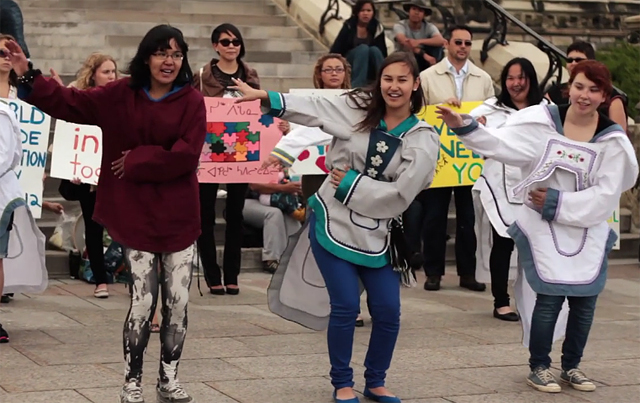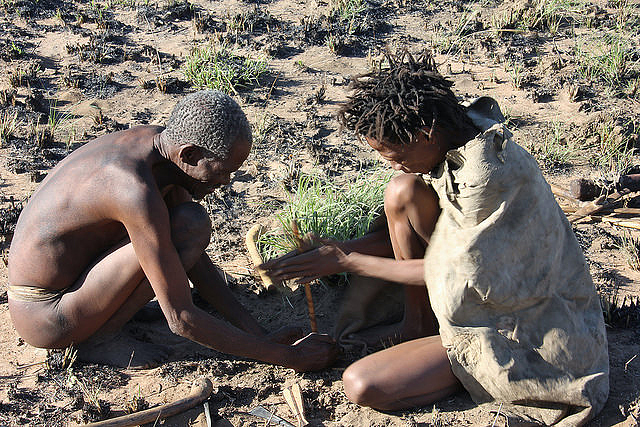This website welcomes the new year with special pleasure: it’s the beginning of our 16th year of providing news and reviews about the 25 peaceful societies that we focus on. While some of the societies we follow have lost a lot of their peacefulness over the years, others appear from the news stories to cherish their values as strongly as ever. Most of them are slowly changing as they adapt to the stresses of modernity, though some reject change and do their best to retain their traditions.
But citing the 1,580+ news stories we have published over the years might be construed as a form of bragging. After all, plenty of bloggers have been at it for more than 15 years and have published their posts daily to boot. What’s so special about celebrating an anniversary of a website, anyway? Isn’t it just a form of self-promotion?
A good way to address this question is to ask, what would the peaceful peoples themselves say about the issue? The literature indicates that they are opposed to self-congratulations. Best to let others offer their opinions about important matters. The conviction that modesty is the most effective approach to maintaining a state of harmony comes out in various ways in the classic scholarship about these societies.
An effective approach to checking out this assertion has been to review a bunch of the standard books and articles in the library of peaceful societies and see what jumps out. Specifically, how do these societies handle the braggart? And perhaps more to the point, would they even celebrate something as minor as a 15-year anniversary?

A classic article by Jean Briggs about the Inuit almost leaped off the shelf. The Inuit, she wrote, use a variety of strategies to prevent conflicts from occurring. The people are very modest, cautious, and reticent about their own accomplishments; they avoid making direct requests. If they need to ask for something, they turn it into a joke so that a confrontation is avoided, and a denial is part of the joke.
Furthermore, they do not make invitations or promises; they do not ask questions of other people, particularly the question ‘why,’ either about the way others feel or what their plans are. They also avoid confrontations by denials and by joking. They try to anticipate other people’s needs, to be considerate and helpful, and to welcome visitors.

The Amish have different strategies for avoiding bragging. They evaluate the presence of proper humility in others in many subtle ways: the aggressiveness of a handshake, the curtness of a response, the cocky manner of smiling or laughing by most Americans versus a gentle chuckle, a refined smile, a thoughtful and deliberate manner of speaking by the Amish. According to an outstanding book by Donald Kraybill, they are highly conscious of the danger of pride and any manifestations of individualism. They are careful never to call attention to themselves—articles by Amish authors would normally be published anonymously.
They are as eager to avoid taking personal credit for achievements as outsiders are eager to take credit. If an Amish farmer were to be recognized for his achievements in successful farming, his name would be carefully omitted from a newspaper article about it. The distinctive Amish plain clothing is designed to diminish pride, though traces of pride can be seen at times in fancy harnesses on their buggies, appearances of their horses, or trimmings around their homes.

Some of the best stories about dealing with pride may be found in the literature on the Ju/’hoansi. For instance, in order to repay his Ju/’hoan hosts for their good will during his previous year in their camp, Richard B. Lee purchased a huge ox to be slaughtered for a massive Christmas feast. As the word went out, however, individuals kept coming to him and commenting on how badly he’d been gypped, how thin the beast was, how they’d all go hungry on Christmas, how the ox was only good for its soup bones.
As their constant barbs began to get under his skin, they started indicating that the thinness of the feast would probably provoke fights. Thoroughly spooked by what could only be considered as his colossal error, Lee tried to buy another ox, without success, and considered leaving the camp to spend Christmas day in the bush. He was astonished on Christmas morning when the butchering got under way to observe the ox as fat and meaty as he had first judged.
Piecing together the circumstances of the joke on him, he learned that the put-down was standard Ju/’hoansi technique. Every kill is too small, too old, too thin, unworthy; no one brags, everyone puts down the success of others. The reason is to control arrogance. If a person thinks of himself as a big man, it could lead to boasting, pride, and some day to violence.
By denigrating the kill, or in this case the Christmas ox, they were only trying to cool the proud heart of the anthropologist and prompt him to be gentle. He realized that the Ju/’hoansi had maintained a skepticism about his intentions—they had been dividing and sharing their meat with each other all year—and had tried to force a lesson in humility on him.
Patricia Draper, another anthropologist who did fieldwork among the Ju/’hoansi, shared her own story about the ways they avoid displays of pride in an article she wrote for Ashley Montague’s seminal book Learning Non-Aggression. Since the Ju/’hoansi do not have any periods of plenty in their harsh desert environment, as people living in other arid regions do, and they have no way of storing food supplies, their security rests in the solidarity of their groups. They cannot tolerate the braggart, the nonconformist, the unstable, violent or unpredictable person. The group’s peaceful cohesiveness is its stored surplus.
But Draper continued that if an inexperienced hunter were to return to camp from a successful hunt and announce to everyone that he had killed an eland, he would be greeted with general indifference. Everyone would continue with their activities. Were the younger man to persist with his boasting, an older hunter might reply loudly, so his comments would carry across the clearing, “Why only one?”
The approved way of returning to camp and letting others know of his success would be for the hunter to return to the group and take his normal place at his fire. After a while, another hunter or two would join him and ask him if he saw anything today. No, he’d respond, there is hardly anything out there. Then he’d admit he did shoot at something today.
“Perhaps you will go out with me tomorrow morning and see if anything is dead.” The next morning the hunters would venture out to “discover” the success of the first man. Draper concluded that this is just one example of the very delicate ways personal achievements are handled by the Ju/’hoansi.
So what would the Inuit, Amish, or Ju/’hoansi say about celebrating a 15-year website anniversary? We can hope they would not be too hostile to such an event. After all, some of the news stories, following up on the research by anthropologists and other social scientists, may be helpful to them as well as to other peaceful peoples. They might wish to join this website in wishing our readers a Happy New Year!